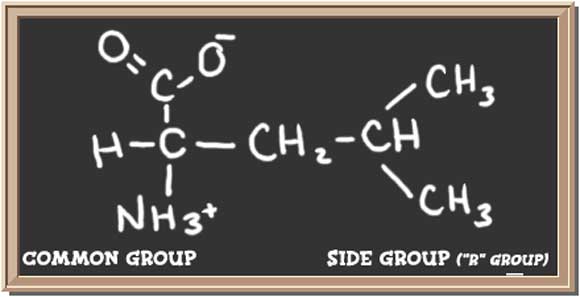
Leucine is an essential/branched-chain amino acid which has been gaining considerable research attention lately for its potential performance-enhancing or ergogenic effects. In particular, researchers have been interested in its ability to promote muscle synthesis as well as to reduce muscle loss during dieting.
Like many supplements that have their roots in animal studies, translating these results to humans is often a challenge. In particular, some researchers have questioned whether or not leucine supplementation would have any additive benefit over simply supplementing with whey protein post-exercise to improve muscle synthesis [1]. In fact, these researchers found that adding 3.4 g of leucine to 16.6 g of whey protein did not elicit any improvement in muscle synthesis over supplementation with whey protein alone.
In contrast, previous researchers found that adding leucine did have additive benefits over a carbohydrate and protein drink alone[2]. In this latter example, participants consumed what amounted to a far larger quantity of leucine than in the prior cited study.
Leucine and Strength:
In a recent study published in the International Journal of Sports Physiology and Performance [3]. the researchers explored the effect of a 12-week supplementation protocol in previously untrained athletes who engaged in a resistance training program. Specifically, the outcome measures included strength, fat mass, bone-mineral free lean mass.
40 healthy male participants were included in the study. For the resistance training component, they trained just twice per week which included 8-12 repetition maximum workout on Nautilus equipment. Strength testing was based on the 5 repetitions maximum test that was performed at baseline, 4 weeks, 8 weeks, and 12 weeks.
In terms of leucine supplementation, the subjects consumed 4 grams/day for the duration of 12 weeks of the study.
Results:
1. Changes in lean tissue mass and fat mass were not significant between the placebo and leucine groups.
“The mean gains in total bone mineral-free lean tissue mass (LTM) and losses in total fat mass (FM) were 1.08 kg (±1.1), 1.53 kg (±1.3) and 0.41 kg (±1.4), 0.93 kg (±3.0) on average for P and L groups respectively.”
2. Strength gains for the 5 RM were 10% higher on average in the leucine group.
“Statistical analysis on the mean percentage gains across the 12-week experimental period showed that the L group had significantly greater percentage mean gains than the P group in 5 out of 8 exercises and total strength (P < .05) (Table 1 ). The statistical analysis showed significant differences between groups for leg press (t24 = -2.79; P = .010), bench press (t24 = -2.45; P = .02), pullover (t24 = -2.33; P = .03), preacher curls (t24 = -3.17; P = .004), triceps press (:t24 = -3.47; P = .002) and total strength (t24 = -4.06; P < .001). No significant differences between conditions were observed for leg curls (P = . 19), chest cross (P = .08) and overhead press (P = .35).”
The study authors noted the need to explore the efficacy and safety of higher or lower doses of leucine in future studies. In the present study, they did not find any adverse health effects associated with leucine supplementation. It’s conceivable that higher doses of leucine than used in this study are necessary to promote muscle growth.
References:
- Tipton KD, Elliott TA, Ferrando AA, Aarsland AA, Wolfe RR. Stimulation of muscle anabolism by resistance exercise and ingestion of leucine plus protein. Appl Physiol Nutr Metab. 2OO9;34(2):15I-161.
- Koopman R, Wagenmakers AJ, Manders RJ, et al. Combined ingestion of protein and free leucine with carbohydrate increases postexercise muscle protein synthesis in vivo in male subjects. Am J Physiol Endoerinol Metab. 2005;288(4):E645-E653.
- Ispoglou T, King RF, Polman RC, Zanker C. Daily L-leucine supplementation in novice trainees during a 12-week weight training program. Int J Sports Physiol Perform. 2011 Mar;6(1):38-50.





